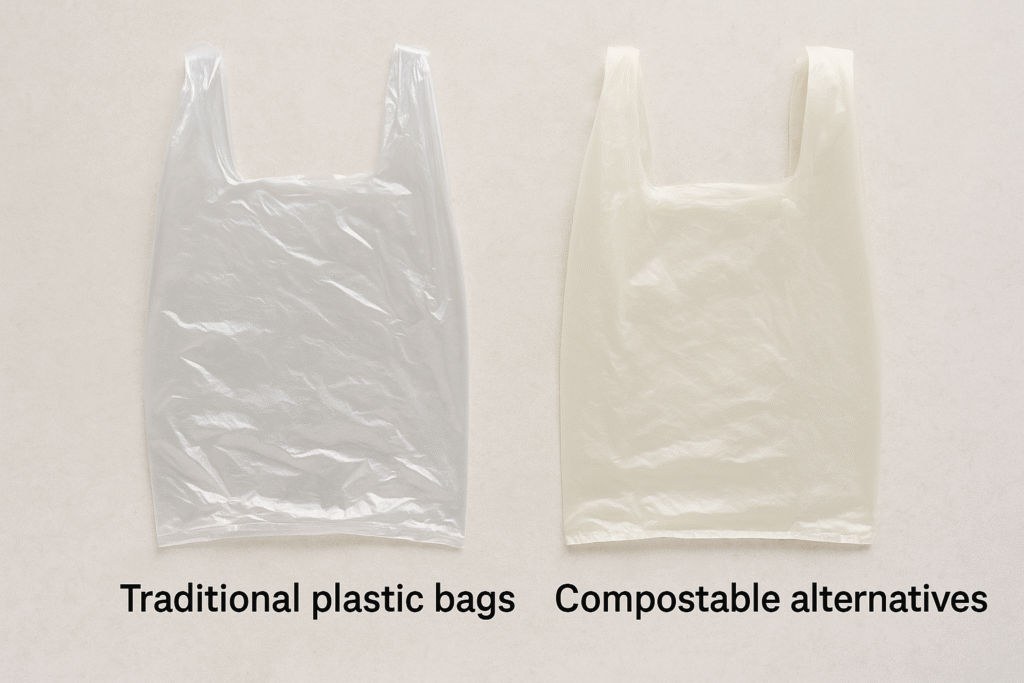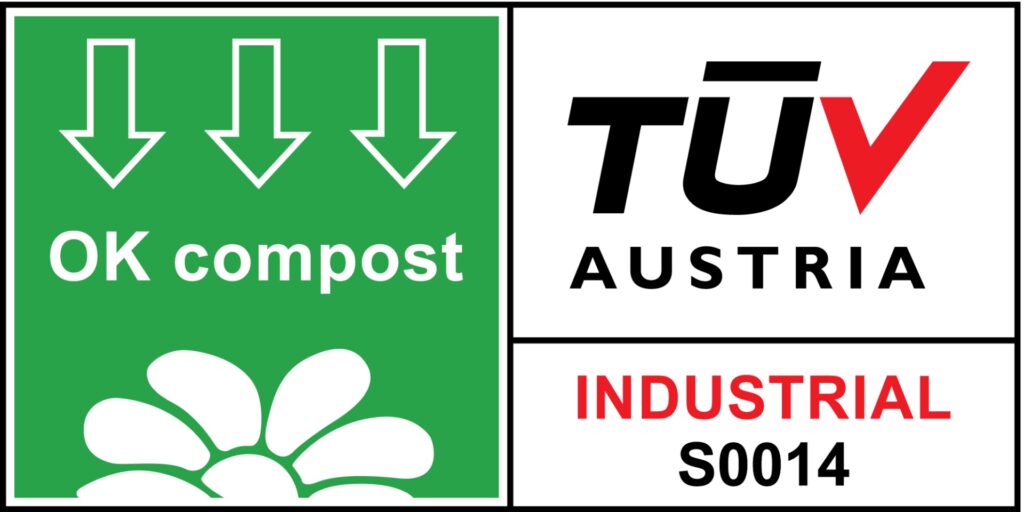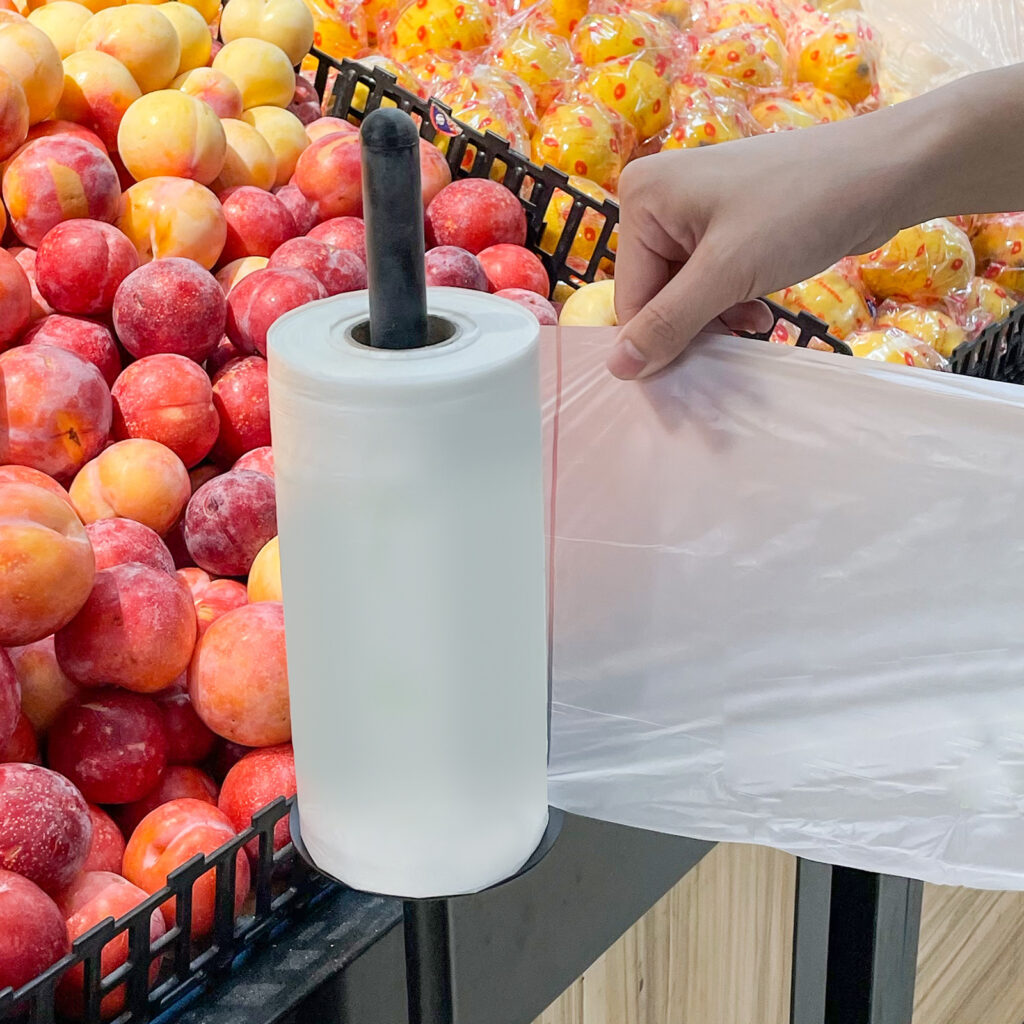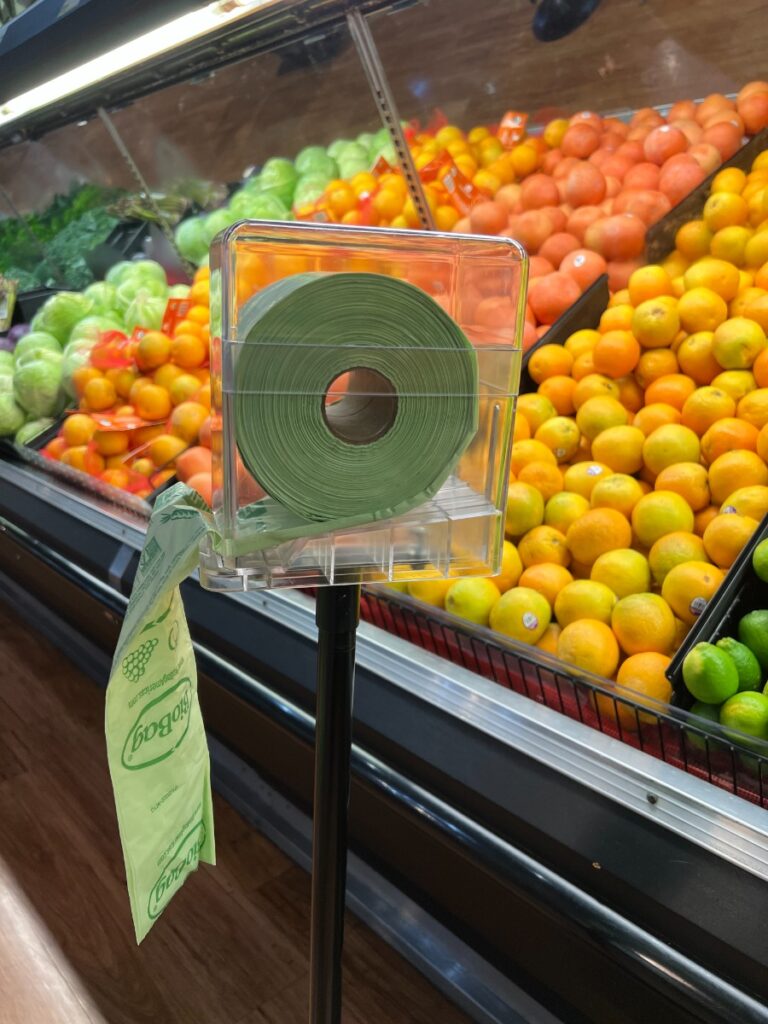Introduction
As more businesses shift toward eco-friendly practices, biodegradable produce bags wholesale is becoming a rising trend in the packaging sector. Whether you run a grocery store, manage a fresh produce brand, or source sustainable packaging for clients, understanding how to choose and buy biodegradable produce bags in bulk is essential.
This article explains everything you need to know—from materials and certifications to customization and pricing—so you can make well-informed decisions for your business.
What Are Biodegradable Produce Bags?
Biodegradable produce bags are a type of packaging made from materials that can naturally break down into organic matter over time. Unlike conventional plastic bags, these alternatives are designed to decompose in composting environments, reducing long-term environmental impact.
Common Materials Used
- PLA (Polylactic Acid): Derived from corn starch, ideal for light to medium produce.
- PBAT (Polybutylene Adipate Terephthalate): Adds flexibility and strength.
- Starch-based blends: Natural feel, suitable for dry produce like potatoes or onions.

Why Buy Biodegradable Produce Bags Wholesale?
Buying in bulk brings cost efficiency, consistency, and better control over packaging quality. More importantly, it ensures that your business maintains a steady supply of environmentally friendly bags.
Benefits of Wholesale Purchases
- Lower cost per unit
- Custom branding options
- Bulk storage and easier logistics
- Stronger supplier relationships
If you run a supermarket chain or export fresh produce, wholesale purchasing can significantly streamline operations.
Key Features to Look For
When sourcing biodegradable produce bags wholesale, consider the following factors:
1. Certification Standards
Look for third-party certifications that guarantee the bags meet compostability or biodegradability standards.
- EN 13432 (Europe)
- ASTM D6400 (USA)
- Home compost certification if applicable


2. Bag Type and Dimensions
- Roll bags: Perforated, ideal for produce sections
- Flat bags: Simple and stackable
- T-shirt style bags: With handles for easy carrying
Check if the supplier offers customizable sizes depending on your produce (e.g., leafy greens, fruits, herbs).
3. Load Capacity
A bag made of PLA may differ in strength compared to one made with PBAT or paper composite. Always verify the maximum weight it can carry.
Custom Printing and Branding
Many wholesalers offer custom logo printing, allowing businesses to align their packaging with branding strategies. This can be especially valuable for organic farms, eco-markets, and sustainable food brands.
Common customization options include:
- One-color or full-color logo printing
- QR codes or sustainability messages
- Perforated or resealable designs
Price Ranges and MOQs
Pricing for biodegradable produce bags varies based on:
- Material used (PLA, PBAT, etc.)
- Bag thickness and dimensions
- Print complexity
- Order volume (MOQ)
As a reference, PLA produce bags in rolls may range between $0.02–$0.06 per unit for wholesale orders of 50,000+ bags. Custom print jobs might incur plate or mold setup fees.
Where to Find Trusted Suppliers
If you’re ready to source biodegradable produce bags wholesale, consider the following types of suppliers:
1. Manufacturers in China and Southeast Asia
These regions dominate production due to cost advantages and flexible manufacturing capacity. Look for suppliers with strong export experience and relevant certifications.
2. Local Distributors or Eco-packaging Companies
These can offer faster shipping and easier communication but may charge more per unit. Useful for lower MOQs or urgent orders.
3. Online B2B Marketplaces
Platforms like Alibaba, Made-in-China, and Global Sources allow businesses to browse and connect with verified wholesale producers.
Logistics and Shipping Considerations
Freight Options
- Sea Freight: Cost-effective for large orders, but slower (25–40 days).
- Air Freight: Faster delivery (7–10 days), but more expensive.
Most bulk packaging orders are palletized, so make sure you account for:
- Pallet height and weight
- Customs and import duty (based on HS codes)
- Eco-label requirements for certain markets (e.g., EU, US)
Compliance and Environmental Responsibility
Just because a bag is labeled “biodegradable” doesn’t mean it meets all eco standards. Always verify:
- The composting conditions required (industrial or home compost)
- The time it takes to decompose
- If the product leaves microplastics or harmful residues
A responsible supplier will provide clear documentation and test results for each batch.
Final Thoughts
Choosing the right supplier and product for biodegradable produce bags wholesale is not just about cost—it’s about aligning your packaging with your brand values and long-term sustainability goals.
A well-selected biodegradable bag can offer excellent performance, impress eco-conscious customers, and contribute positively to your environmental impact.

Summary Checklist
Before placing a wholesale order, ensure the following:
✅ Material and certifications match your market’s needs
✅ Bag size and strength are appropriate for your products
✅ Print and branding details are clearly defined
✅ Pricing and MOQs are transparent
✅ Supplier can provide documentation and freight support

